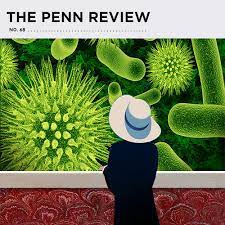
Wash. Rinse. Repeat. A good mantra for samsara, seems. But the Buddhist view of samsara is negative—i.e. an endless cycle of pain, sickness, and death—while the Western view skews positive. You know. Reincarnation as better-than-nothing form of immortality. Too bad you can’t remember your former lives. Unless you’re Shirley MacLaine, that is.
Today’s poem is one part samsara and one part shaggy dog. Dogs, you see, are a form of immortality too. When life hits you with trauma and misery, invest in a puppy. Voilà, as they say in Versaille. Your worries dissolve in the day-to-day delights of puppy tail and puppy tongue.
A dog, after all, lives in the moment. It has little use for past or future. In that sense, it is not only man’s best friend, but his bodhisattva, a being that long ago reached enlightenment but is there for you anyway.
So the next time you read some rule that says, “Thou shalt not write a poem about dogs,” you can either roll your eyes and ignore it OR do as David Salner does and double down: dog plus Eastern philosophy.
A Dog by the Sea
by David Salner
Just after dawn, we get up,
without coffee, and let the dog lead us
through a grove of wind-stunted trees,
spiked succulents, red-berried holly,
and over the dune ridge out of the gray
of still sleeping minds. A line of pink
from the not yet risen sun
reminds me of the lilac shadows
caught in the radial grooves of shells.
I take up your hand and feel the blood
warming your fingers, as the dog bounds off
dragging her leash through wet sand.
She’s after gulls and a line of waves
that repeat themselves, she seems to think,
because they want to play.
A morning breeze
stirs the now turning tide, breathing over it,
sighing toward bayside. As the waves come in
whorls of light unfold on the sand. How I want
for us to repeat ourselves, on and on,
you holding the leash of a silly dog, me
feeling the beat, the blood in your hand.
In addition to imagery related to the sea, note how the waves repeat themselves, the tide turns eternal, and the narrator confesses “How I want / for us to repeat ourselves, on and on.”
If you inhale deeply while reading, you’ll catch whiffs of both salt and Buddhism, meaning we have a dog poem, yes. But an oh-so-human-in-its-wistfulness one, too.








